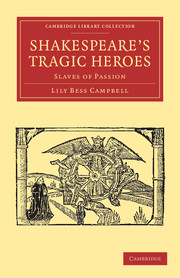CHAPTER ELEVEN
Nosce Teipsum. How to know Men.
Published online by Cambridge University Press: 07 September 2010
Summary
The absorbing problem of the Renaissance, knowledge of one's self, led men into the attempt to know man and to know men. And how to know men became an all-embracing question, the answer to which involved a vast and comprehensive knowledge. Aristotle's Physiognomonica was basic in this knowledge, and this work was posited upon the assumption that mental character and bodily condition were mutually sympathetic and influential. We have already seen that this assumption was one acceptable to Renaissance writers. Aristotle proposed, then, that the study of men be made first on the basis of their resemblance to different beasts, since the characteristics of different beasts can be posited. The second method which he proposed was the study of racial characteristics and the study of individuals as they resemble in their characteristics certain defined race types. The third method which he suggested was the study of men to see how they bear permanently those marks which have come to be recognized as distinguishing men under the influence of clearly defined passions. Furthermore, Aristotle suggested that we may consider those characteristics or passions which are usually found together, and that we may hence infer the presence of unknown factors from those that are known. We may also infer much as to the male and the female natures from the assumption that men as compared with women are hot and dry; that women as compared with men are cold and moist, and also from the assumption that the lion typifies the masculine nature and the panther the feminine.
- Type
- Chapter
- Information
- Shakespeare's Tragic HeroesSlaves of Passion, pp. 103 - 106Publisher: Cambridge University PressPrint publication year: 2009First published in: 1930

